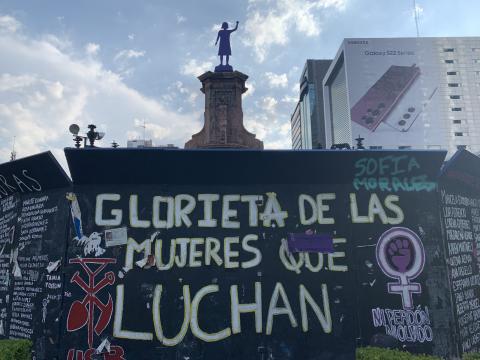Restorative Criticism and Communal Writing in Times of NiUnaMenos
–
Robert A. Jones '59 Conference Room148 Hillcrest Road
Middlebury, VT 05753 View in Campus Map
Open to the Public

Mexican women writers are driving an affective rearrangement of aesthetic practices, places of enunciation, and the “lettered city” — a shift that is shaking up ideas about the canon, the functioning of national literature, and the role of the intellectual in the 21st century. As Cristina Rivera Garza has pointed out, we are witnessing a transformation in literature where the book is no longer the endpoint, nor is there a singular figure of the author. Instead, a collective and mobile literature is emerging — one that operates particularly through its affective power to circulate ideas with political and ethical potential. It is within this context that I propose to focus on what I call “restorative criticism”: the process of overwriting the canon in works that register traces of canonical erasure. I also examine communal writing as a means of breaking bonds with the Mexican canon in the second half of the 21st century, interrogating women’s writing as a deliberate act of dissidence, coinciding with the rise of feminist movements in Mexico. Some authors discussed in this talk will include Ave Barrera’s Restauración, Didi Gutiérrez’s Las elegantes, the work of Cristina Rivera Garza, among others.
Presented by Francesca Dennstedt, Assistant Professor of Latinx at the University of Kentucky.
Co-sponsored by the Academic Speaker Supplement Fund and the Axinn Center for the Humanities.
Contact Organizer
Kervick, Elizabeth
ekervick@middlebury.edu
443-5565

